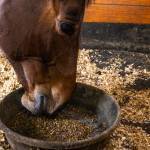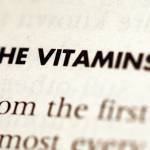Question
My teenage Paso Fino mare Leonina is very thin. She is kept outside most of the time, so she has access to some pasture. Her current ration includes alfalfa hay, straight oats, and rice bran oil. Leonina doesn’t have much appetite at all. Any ideas?
Answer
I hope you have looped in your veterinarian regarding your mare’s weight loss. He may be able to determine the cause of the problem and, in doing so, he will likely ask many questions about the mare’s deworming protocol, dental care history, lameness, and other health topics. He may suggest a fecal egg count to determine parasite burden.
If weight loss is due to limited appetite and low feed intake, supplying palatable, calorie-dense forages and feeds is key.
High-quality alfalfa hay is an excellent choice for horses with elevated energy needs. Alfalfa can be provided as traditional, long-stem hay. Feed stores often carry other alfalfa products, like pellets and cubes, and this is useful if you are in an area where alfalfa hay is hard to find. She should have access to forage at all times.
In terms of concentrates, you may consider an oat-based feed with added fat (6-10% fat) to support weight gain. Be sure to feed the amount recommended by the manufacturer, gradually increasing feed if necessary. High-fat feeds can be useful in these cases, as you can often achieve results with less feed, though some horses may not like a feed with a lot of liquid oil added. High-fat pelleted supplements like stabilized rice bran can be fed to boost calorie intake and are well liked by most horses.
If you don’t want to change feeds at this time, I suggest adding a ration balancer to the diet to provide essential amino acids, vitamins, and minerals. Most feed lines carry a ration balancer. These feeds often contain ingredients, such as yeast, to support digestive health, so additional supplementation may not be needed.
Offering multiple small meals throughout the day can be beneficial to horses that have a reduced appetite or are receiving large amounts of concentrate feed. Some horses are fed three, four, or five small meals a day. Other ways to perk up her appetite include offering her green grass if pasture quality is especially poor, adding a bit of molasses to her feed, or tempting her with her favorite treats mixed into her feed.
To support digestive health and potentially improve appetite, you may want to consider supplementing with EquiShure, a time-released hindgut buffer that stabilizes the hindgut environment and promotes a healthy microbial population. EquiShure is recommended for use during diet transitions such as changes in feed or forages to help minimize health problems associated with these management strategies.








